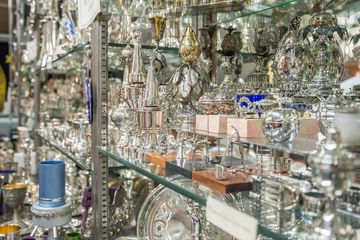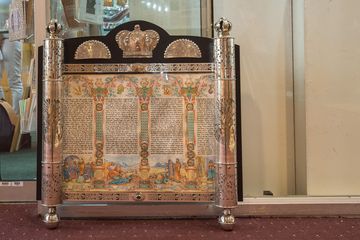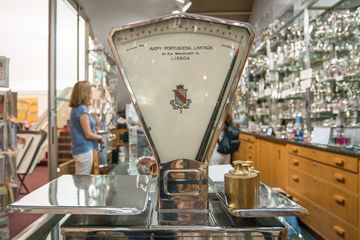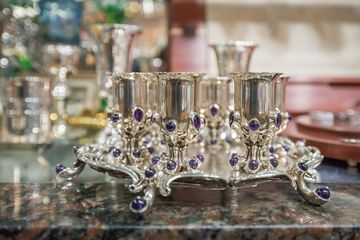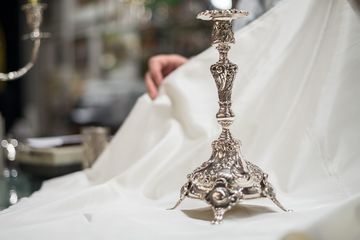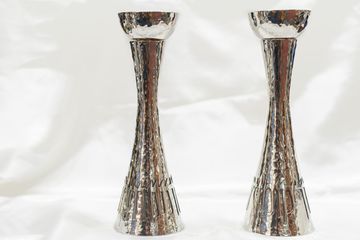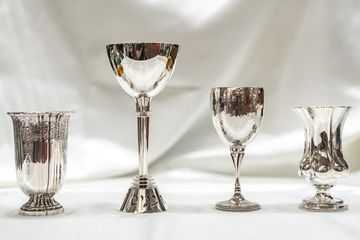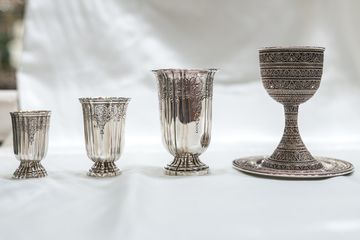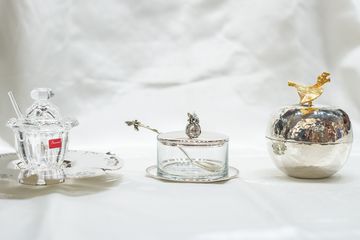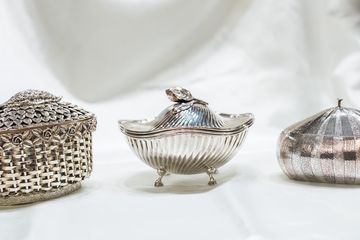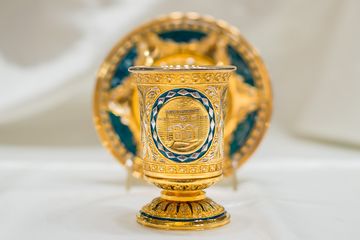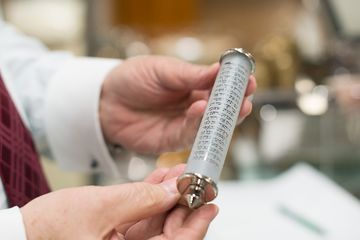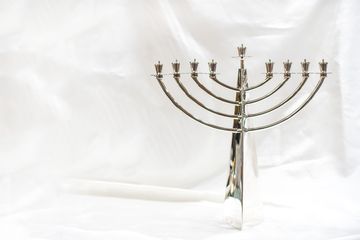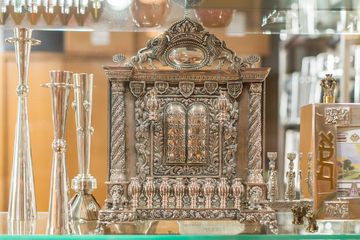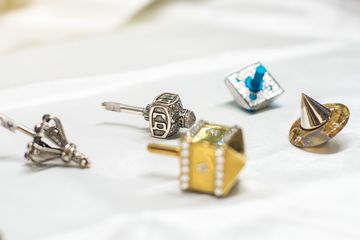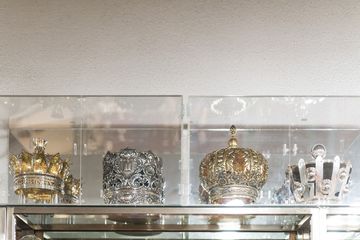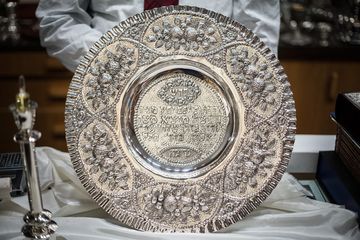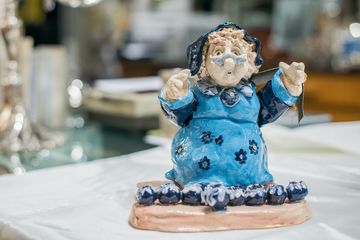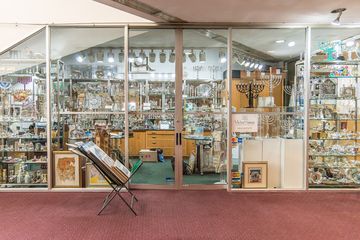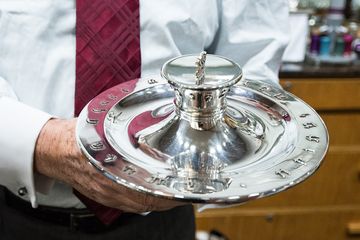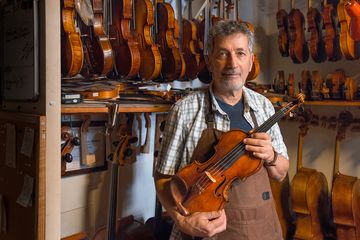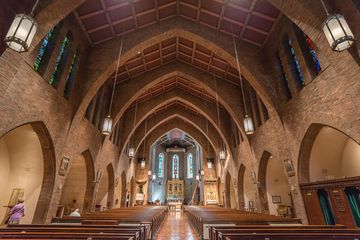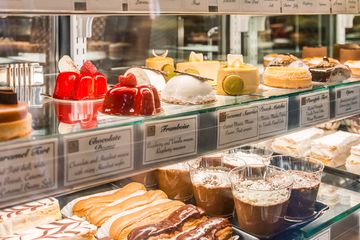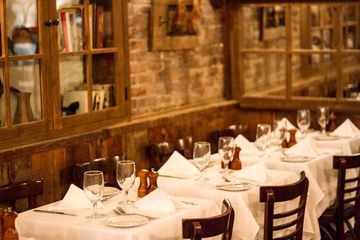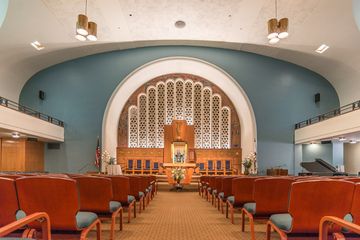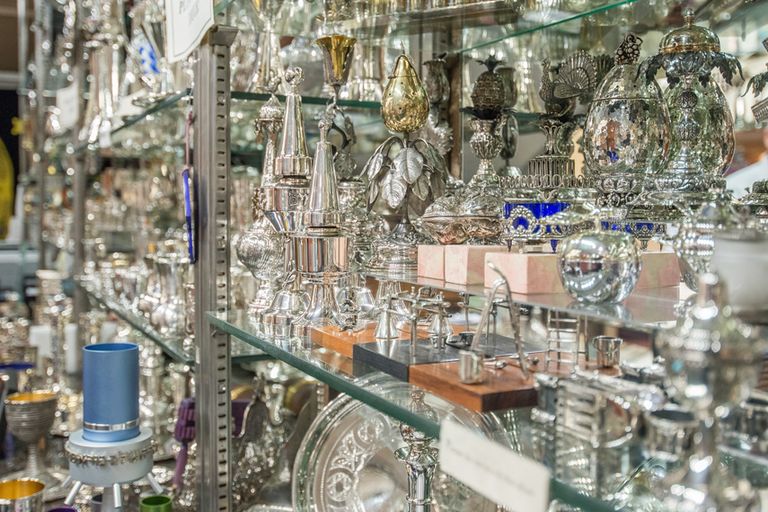
One pair of candlesticks bore elegant motifs of fascinating detail; and the other glistened with tasteful simplicity. The former was handmade in Portugal, carved out from the back in a traditional style. The latter was a modern design fabricated by Ludwig Wolpert, an Israeli-American goldsmith born in Germany. Prior to the early 1930s, precious holy decor like these could be found in most Jewish homes, but, as a consequence of the Holocaust, many were destroyed or stolen.
"My goal is to restore the traditions and the Judaica that everyone had prior to the war," explained owner Michael Strauss. "These pieces become their heirlooms." Born during the Holocaust, Michael was able to survive with his parents by escaping from Frankfurt to Switzerland. The rest of his relatives were not as fortunate.
After being an avid collector of Kiddush cups for years, Michael decided to open a silver shop in 1983. Two years later, Arthur Schneier, Rabbi of Park East Synagogue, invited Michael to move into the lobby, an offer he gladly accepted.
Standing in Michael Strauss Silversmiths was a memorable occasion as Michael showed us his many fine, silver gems. The honey dishes were ornamented with silver apples, bees, and beehives. There was even one in crystal made by Baccarat. Silversmiths from Israel crafted Etrog holders, there were endless stunning Seder plates, and no two Kiddush cups were alike. As Michael removed items one by one from the shelves for us to photograph, he shared the stories behind each exquisite piece, enlightening the Manhattan Sideways team with the history and holidays they represented.
"I do not shop online," Michael admitted, "I want to feel it. I want to know it." He told us that he has traveled throughout Europe and been on buying trips to Israel several times a year for decades now. Tracing my fingers over a hand carved Mezuzah and feeling its weight, I understood what he meant, but it is also the meanings that make these pieces so precious. The alms boxes for charity represent "our responsibility for our brethren," and, when I asked about the glass-enclosed crowns on a top shelf, Michael shared with me the fact that they were reproductions of sketches preserved by the son of a craftsman who did not survive the Holocaust.
The most meaningful times during my walks on the side streets are meeting the people behind the small businesses. I became teary-eyed as I hugged Michael Strauss good-bye, for this had been an experience like no other. He is a warm, kind gentleman, who has truly devoted his life to something that he is passionate about. And, through his commitment to the silver craftspeople, he has been able to offer some of the finest Judaica available to those of us in New York and the world over.
Before departing, I came across a ceramic menorah from Israel featuring a colorful little woman holding out her hands, inviting all to bring flame to candles. I pondered to whom I might give such an intriguing and humorous gift to someday. For the time being, I was content walking away with a simple, yet elegant silver and blue dreidel to add to my daughter's collection - a Hanukkah tradition that I have kept for the past thirty years.
